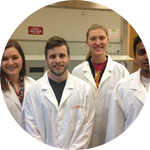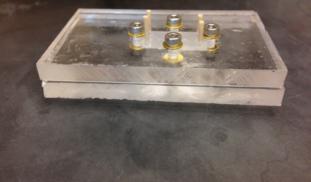Please wait...
About This Project
During pregnancy, placentas are extremely susceptible to various diseases and teratogens, so various medications with the ability to eradicate these problems are being tested. Current drug testing methods are considered to be unethical and unreliable, due to costs and the testing of medication on animals. Our research focuses on creating a microfluidic device that will allow us to move away from the drug testing of live subjects, and move towards a more ethical and effective method of testing.
More Lab Notes From This Project

Browse Other Projects on Experiment
Related Projects
Highly-sensitive, real-time enzyme methane oxidation rate measurements using an electrochemical assay
A low-cost, rapid, and highly sensitive assay is needed to measure methane gas oxidation rates by methane...
Engineering of a suction cup stethoscope for non-invasive monitoring of physiological sounds in baleen whales
Baleen whales are large-bodied predators that, despite their critical role in marine ecosystems, our understanding...
Building a better fish: Engineering fish for smarter aquaculture
What if we built a better fish instead of depleting wild fisheries? Natural stocks can’t keep up with demand...


